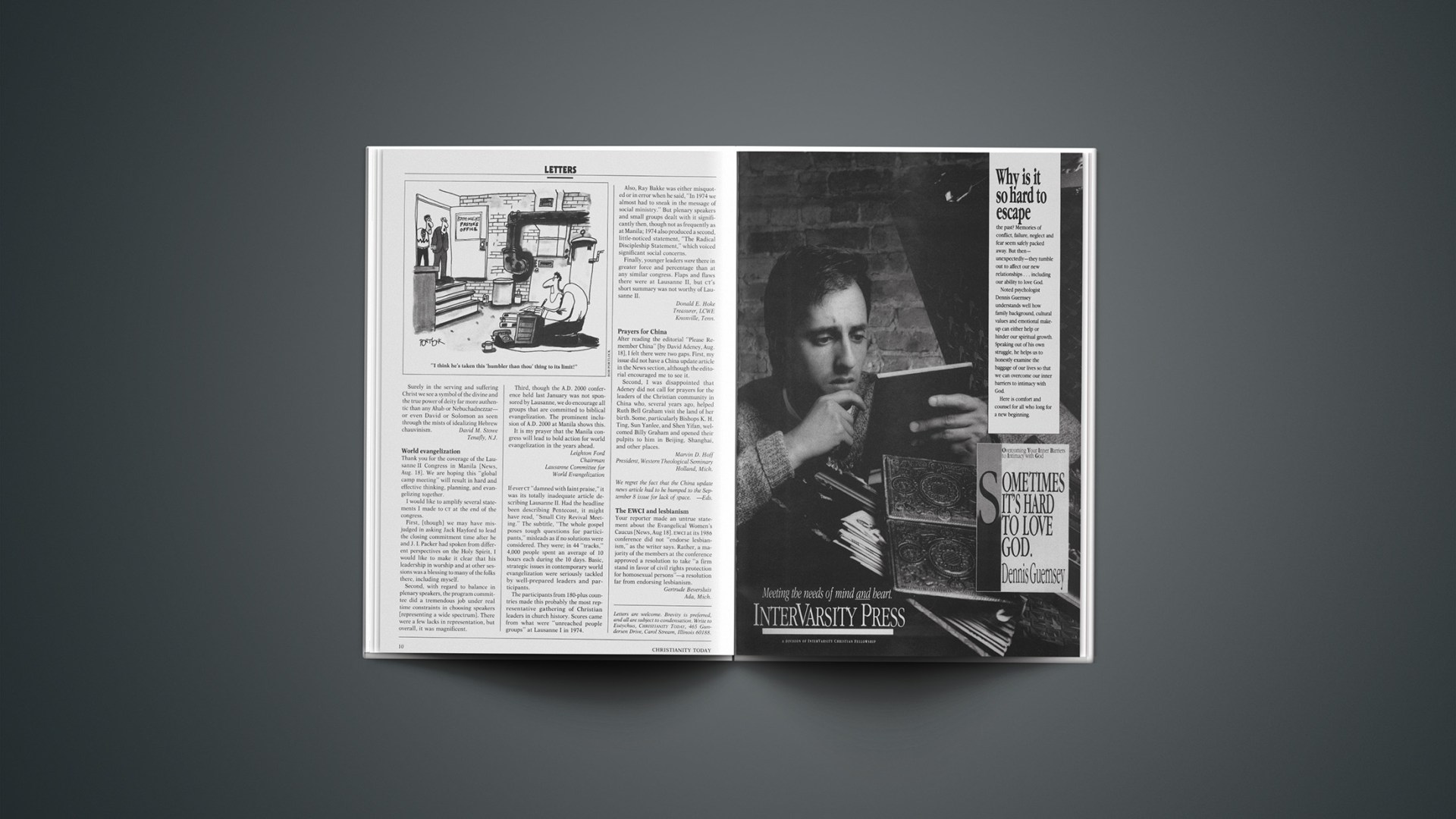In my younger days I played football—as a defensive halfback. Sometimes, misled by the clever ball handling of the opposing quarterback, I pulled in too quickly. I never accused the quarterback of lying—I blamed my bad judgment. During a football game, no one expects to trust the other side.
But when people we believe we are supposed to trust mislead us, what are we to think? In recent years Gary Hart, Jim Bakker, John Poindexter, and Oliver North all told huge lies. And as this column is going off to the typesetter, Bakker is having his day in court. In response to the perfidy of these public figures, Time magazine asked if we are not a nation of liars. I worry: Since two of these four are professed evangelicals, are evangelicals in danger of becoming known as a body of liars?
Our society has trivialized lying. But the slide into acceptable deceit has a long history. Some lies, it is argued, are justified. Thomas Aquinas, for example, divided lies into three categories—jokes, helpful lies, and malicious lies. Although the first two are sins, only the last is a mortal sin.
In our own day, Dietrich Bonhoeffer taught us: “It is only the cynic who claims ‘to speak the truth’ at all times and in all places to all men in the same way.… It is very difficult … to say what actually constitutes a lie.”
This attitude toward lying developed into the biggest “red herring” of all: that lies for a good purpose are morally acceptable. Oliver North undoubtedly convinced himself he was lying for the good of the nation. In his own defense North admitted that “Lying isn’t nice,” but he added: “Sometimes you must weigh in the balance the difference between lives and lies.”
I admire Oliver North’s patriotism, but I believe that he was seriously mistaken. Immanuel Kant once said, “Lying violates the source of law and destroys the very foundation of our social and political relationships.” What North may well have meant for the good of his country represents a serious blow to the mutual trust and integrity that is essential to the life of a nation.
It is true that we must be careful how we define a lie. We cannot condemn as a lie every statement of what is not so. A lie differs from a simple mistake or even a faked pass on the gridiron. Likewise, jokes are not lies. Jokes are momentary deceptions for mutual enjoyment.
Most of us think that in acknowledged warfare, the rules of warfare—like a game—are sufficient warning. All should expect deception; no one is morally bound to tell the enemy the truth.
A lie is a statement or sign intended to lead another to believe what we ourselves do not really believe, except when it is mutually understood that our words are not to be trusted.
Given this definition, there is a tradition absolutely against lying that is every bit as strong as the Aquinas-Bonhoeffer-North quibbling. The Bible unequivocally denounces lies and liars. The sixth of the ten great commandments declares: “Thou shalt not bear false witness …” (Deut. 5:20). The apostle Paul writes: “Put away lying, speak the truth” (Eph. 4:24). And the Book of Revelation sets forth repeatedly the awful reminder that “no one who practices lying” shall ever have any part in the new heavens and the new earth. God “hates” liars (Mal. 3:5).
The greatest Christian philosopher-theologian of the early church, Augustine, argued for an absolutist position. No Christian should ever tell a lie. Some lies are worse than others—lies intended to hurt. Some lies are understandable, and he was loath to condemn those who would lie to save a life. Yet all lies are wrong. John Wesley agreed with Augustine’s absolutist position: “I would not tell one lie to save the souls of all the world.”
I must side with Augustine and Wesley. As the ancient theologian said: “One never errs more safely than when one errs by too much loving the truth.”
I do not know what I would do if I had to choose between lying or losing my life. But from the safe confines of my office, I would rather face my Lord after telling the truth than stand before him and have to explain why I had lied because the truth cost too much.










